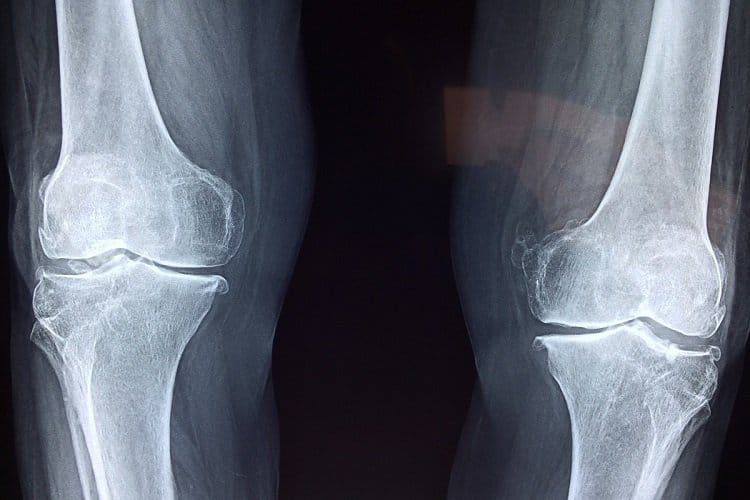The dietary supplement industry is booming right now. In fact, it’s expected to reach a valuation of $278.02 billion by the year 2024. With so many supplements on the market, it can be hard to know which ones to use and which ones to avoid.
Everyone’s needs are different, of course. But, there are some supplements that just about everyone can benefit from. One of those is glucosamine. Read on to learn more about the benefits of glucosamine and why you might want to start incorporating it into your supplement routine.
What is Glucosamine?
First things first, let’s explain what glucosamine is. Glucosamine is a supplement made from a substance extracted from the shells of shellfish. Glucosamine comes in many different forms, including the following:
-
Glucosamine sulfate
-
Glucosamine hydrochloride
-
N-acetyl-glucosamine
Glucosamine can also be combined with other ingredients to enhance its benefits. Common ingredients added to glucosamine supplements include chondroitin sulfate, shark cartilage, and MSM (short for Methylsulfonylmethane).
Glucosamine occurs naturally in the body and is produced by cartilage (tissue that cushions the joints). However, many people benefit from supplemental glucosamine, especially those who have damaged cartilage.

Benefits of Glucosamine
There are many reasons to consider adding glucosamine to your supplement routine. Listed below are some of the greatest benefits that people notice when they use it on a regular basis:
1. Better Digestion

Glucosamine can be used to improve digestive system function and repair the lining of the gastrointestinal tract. This makes it especially beneficial to people who are struggling with symptoms of increased intestinal permeability of “leaky gut syndrome.” When the GI lining is damaged, food particles and proteins can pass into the bloodstream and trigger an inflammatory response in the body.
Research also shows that glucosamine is helpful in treating chronic inflammatory bowel diseases like Crohn’s disease and ulcerative colitis. This may be because people with this illnesses naturally have lower levels of glucosamine in their bodies.
One study found that 75 percent of patients who supplemented with N-acetyl-glucosamine saw a reduction in their symptoms.
2. Reduced Arthritis Pain

Glucosamine can also play a major role in arthritis management. Because people with arthritis lack cartilage, they often have lower levels of glucosamine in their bodies.
Some research shows that glucosamine can be just as effective as over-the-counter medications for treating arthritis pain and inflammation. It can also improve joint function and help slow the deterioration of existing cartilage. This, in turn, helps slow the progression of the disease.
Although it works well as an alternative arthritis treatment, glucosamine does seem to take longer than other medications to take effect, though. In most cases, it takes about 4-8 weeks of consistent supplementation to notice a reduction in pain.
Glucosamine also appears to work best for younger individuals with mild or moderate forms of arthritis.
3. Faster Recovery

If you’ve been working out a lot to try and build muscle, you may be more sore than usual. Glucosamine is a great post-workout supplement that can help speed up recovery and reduce muscle soreness.
Glucosamine specifically helps repair connective tissue and reduces inflammation.
It can also be effective if you’re trying to recover from an injury. One study even found that, among athletes suffering from acute knee injuries, those who consumed glucosamine saw improvements in knee extension and flexion when compared to the placebo group. The improvements came after 28 days of supplementation.
4. Relieved TMJ Symptoms

If you struggle with a TMJ (temporomandibular joint) disorder, glucosamine can help relieve your pain and inflammation.
People with TMJ disorders experience inflammation in the joint that connects the jaw to the skull and tend to struggle with neck and jaw pain, headaches, and sleeping difficulties.
Research shows that glucosamine is just as effective as over-the-counter painkillers for relieving TMJ disorder pain. Long-term supplementation also helps improve chewing ability and mitigates sleep difficulties.
5. Reduced MS Symptoms
People who suffer from multiple sclerosis (MS), a degenerative central nervous system disease that causes the immune system to attack the myelin sheath that protects the nerves in the brain and spinal cord, can also benefit from glucosamine supplementation.
There is currently no cure for multiple sclerosis. But, glucosamine does appear to help slow the progression of MS symptoms. In an animal study, mice that received glucosamine injections had less inflammation and less destruction of the myelin sheath surrounding the spinal cord.
Glucosamine may also be able to help relieve pain and muscle stiffness associated with MS.
Potential Side Effects of Glucosamine
Generally speaking, glucosamine is safe for most people to consume. There are a few mild potential side effects associated with this supplement, including the following:
-
Upset stomach
-
Constipation
-
Diarrhea
-
Rashes
-
Headaches
It’s safe for most people, but glucosamine is not ideal for women who are pregnant or breastfeeding. People with shellfish allergies should also avoid glucosamine products unless they’re using synthetic glucosamine.
Some people claim that glucosamine is not good for diabetics because it can raise blood sugar. These claims have been largely debunked, though.
Final Thoughts
As you can see, there are lots of benefits that come with taking glucosamine on a regular basis. If you want to see a faster recovery, reduced pain and inflammation, and better digestion (and you’re not at risk for any adverse side effects or allergic reactions), you may want to consider adding this supplement to your routine today.

